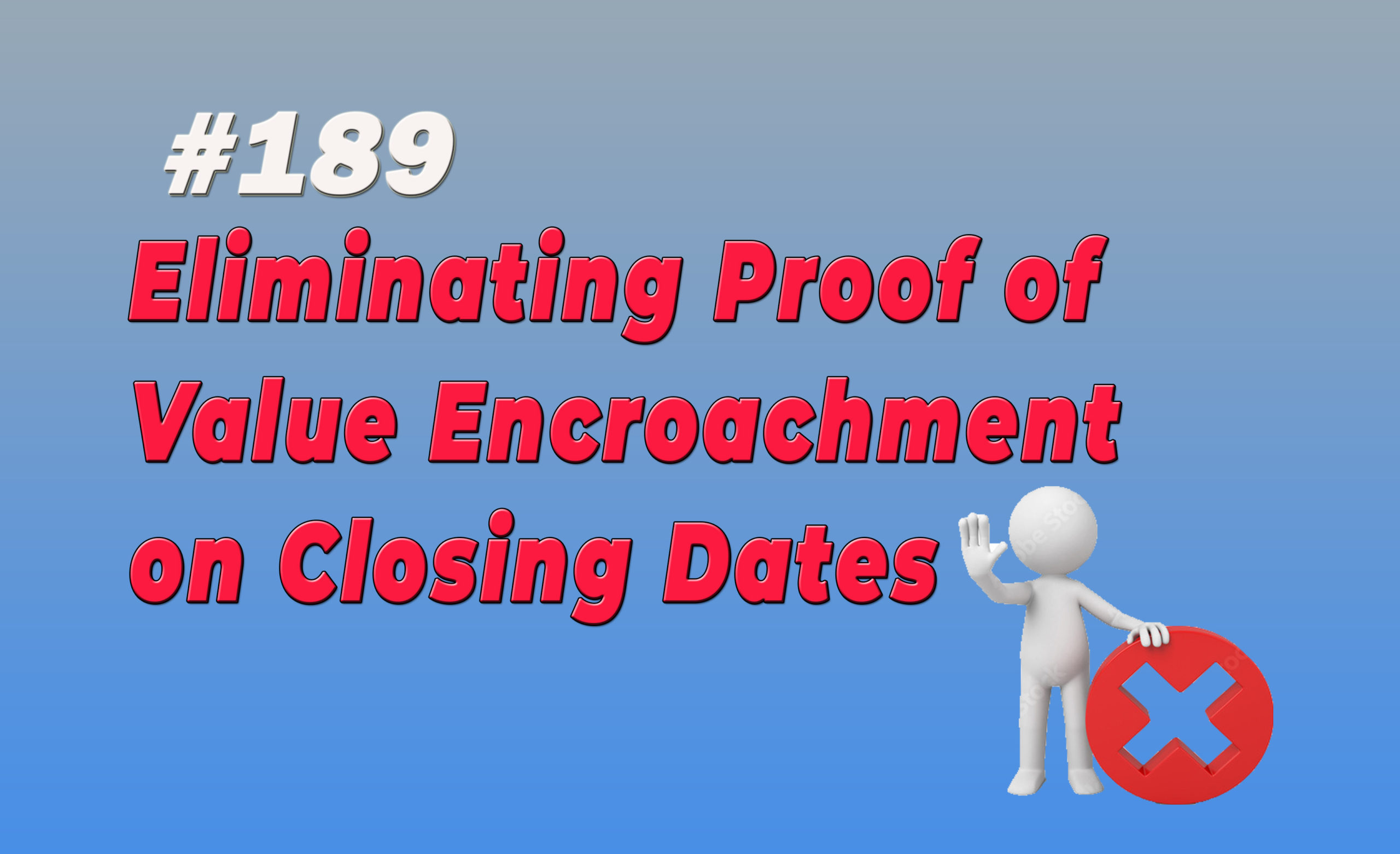
Blog
Notes:
One of the most important and most challenging steps toward completing a POC or proof of concept is getting a technical win. As sales engineers, we’re expected to fulfill the customer’s requests but at the same time also guide them through the complexities of the buying process. Is there a way to make it easier for you and your customers? Find out as we talk to a lifelong sales engineer as he shares his learnings on how to evaluate sales procedures, increase technical close ratios and reduce the length of sales cycles in this episode of We the Sales Engineers.
David McCulley is the Senior Vice President of Sales Engineering at Provarity, a full lifecycle and continuous Proof-of-Value platform that provides enterprise sales and purchase stakeholders with real-time visibility, seamless collaboration, and AI-powered insights. Provarity’s platform combines intelligent services for workflow management and collaboration and success monitoring to transform how businesses, partners, and customers manage the enterprise customer lifecycle.
In this episode, David shares the insights and lessons he’s gathered from over 30 plus years of selling technical solutions in over half a dozen startups and advising executive teams on go-to-market strategies. We also discuss a comprehensive evaluation program or POC methodology that can be applied to any organization to quickly develop a project plan to prepare, execute and achieve technical closure in an evaluation.
Key Takeaways:
- How David started as an IT and marketing engineer before joining the sales engineering team
- Okay, so did you know what sales engineering was before you became a sales engineer? Never even heard of it since 1997
- What David’s first impression of sales engineering
- Why he stayed in sales engineering and never left
- Shifting away from the larger companies and working with smaller startups
- The process of changing from one company to another
- When should you do a demo?
- Is it beneficial for SEs to record themselves doing a demo?
- Seeing the demo side of the sales engineering industry grow more and more
- There’s also a benefit to using those demo tools that you were mentioning
- What mistakes do you see people do before they even get into the evaluation portion?
- Personal recommendations to do a kickoff call when providing licenses to my customers
- How to schedule a kickoff meeting with your customers
- Why you shouldn’t give in to customers when they give a bit of pushback
- David’s evaluation planning methodology simplifies and reduces the length of POC
- identifying escalation points in my own organization
- Important elements that you need to track and keep an eye on in a good POC
- Defining the proof of value or proof of concept
- How to show customers you’re better than your competitors
- Why competitors involved in the opportunity can actually be a gamechanger
- How to overcome issues when salespeople say yes to everything the customer asks
- Things we have to watch for to make sure you have an executive influential buyer with a commitment to purchase technology
Quotes:
“The highlight for me is being in front of customers.” – David McCulley
“There is a methodology and a process to this. And you got to figure out how that process is going to be effective in those young companies. So I enjoyed doing that consulting and trying to figure out a lot of those scenarios, I would be SE number one, trying to figure out what those processes are to be able to get to that technical win.” – David McCulley
“There are some AEs and some organizations that rely heavily on relationships, which I like to classify as touchpoints. So I think there’s a human element. If I can get on the call early, and I can get some additional discovery as a technology professional may help the sales cycle. And it’s just another touchpoint in a relationship I’m building earlier in the cycle.” – David McCulley
“If you have the time, do it and build that relationship.” – David McCulley
“You need to have a very well-defined process. You need to know the stages of your evaluation. So you need to build that outline. And you have to have some fundamental rules you want to follow, and evaluations need to end they have to have an end date.” – David McCulley
“We also need to be good stewards of our own business and help our selling teams find out what the real state is of that customer. A lot of times, individuals get pushed into doing things when it’s not ready. Right. And it’s unhealthy for both us and the customer.” – David McCulley



